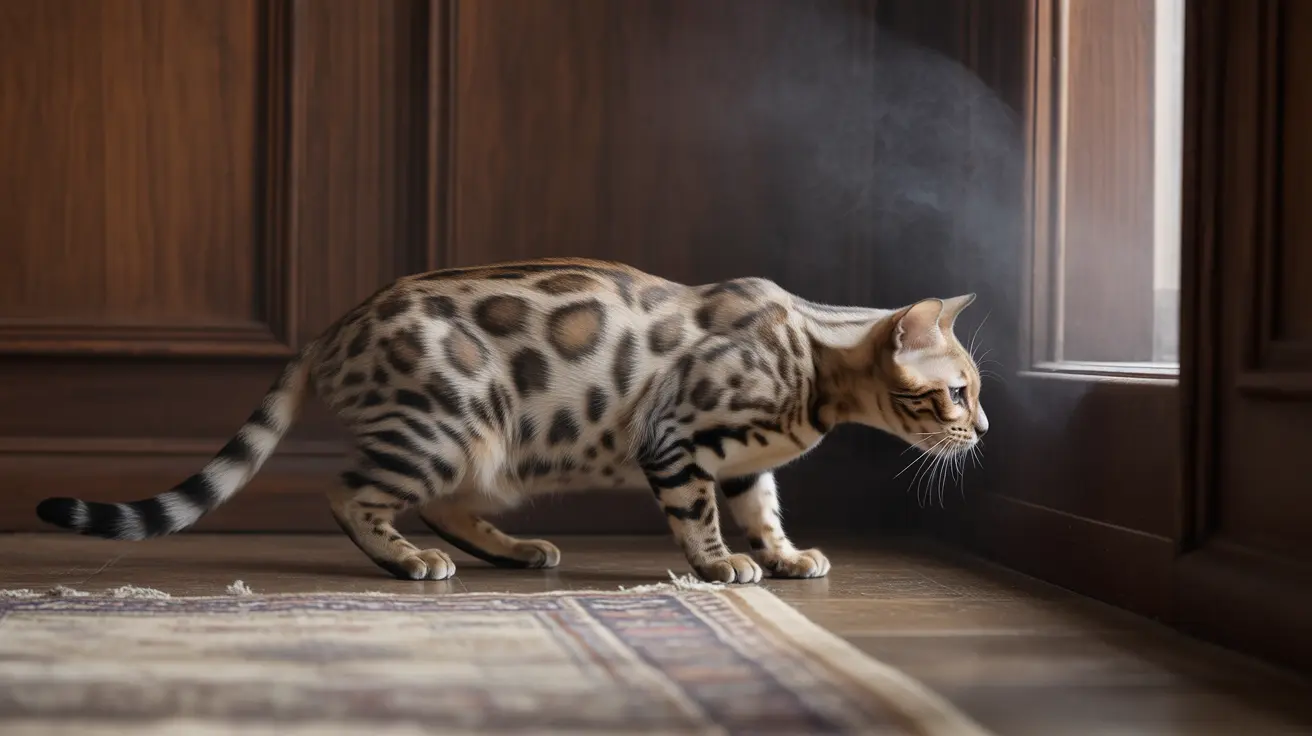Ever wondered about your cat's incredible ability to detect rodents? A cat's sense of smell is truly remarkable, especially when it comes to hunting prey like mice. With approximately 200 million scent receptors compared to our mere 5 million, cats possess an olfactory system that's up to 14 times more powerful than humans. This extraordinary sense plays a crucial role in their natural hunting abilities and pest control capabilities.
In this comprehensive guide, we'll explore the fascinating relationship between cats and mice from a scientific perspective, examining how cats use their superior sense of smell to detect rodents and why mice have such strong reactions to feline scents.
The Power of a Cat's Nose: Understanding Feline Olfactory Abilities
Cats are equipped with an impressive array of sensory tools that make them exceptional hunters. Their primary olfactory system works in conjunction with a special organ called the vomeronasal organ (Jacobson's organ), which allows them to "taste" scents in the air. This dual-sensing capability enables cats to detect mice even when they're hidden behind walls or underneath floorboards.
The Jacobson's organ is particularly sensitive to pheromones and other chemical signals that mice naturally release. When your cat makes that distinctive "flehmen response" - curling their upper lip and appearing to grimace - they're actually drawing air into this specialized organ for enhanced scent analysis.
How Mice React to Cat Scent: A Matter of Survival
The relationship between cats and mice is deeply rooted in evolutionary biology. Mice have developed specific genetic adaptations to detect and respond to cat odors, including a dedicated gene called TAAR4 that triggers immediate avoidance behaviors when cat scent is detected.
Research has shown that exposure to cat odors, particularly compounds found in cat urine like L-Felinine, can cause significant physiological changes in mice, including:
- Increased stress hormone levels
- Reduced reproductive success
- Altered behavior patterns
- Activation of defensive neural circuits
The Effectiveness of Cats as Natural Rodent Deterrents
While cats are natural predators of mice, their mere presence can serve as a powerful deterrent. The scent of a cat in an environment typically causes mice to:
- Avoid entering the area
- Reduce their foraging activities
- Seek alternative territories
- Display heightened stress responses
However, it's important to note that not all cats are equally effective mousers. Factors such as individual temperament, hunting experience, and even early life exposure to prey can influence a cat's interest in and ability to catch mice.
Maximizing Your Cat's Natural Pest Control Abilities
To make the most of your cat's natural rodent-deterrent capabilities, consider these practical tips:
- Allow your cat access to areas where mouse activity is suspected
- Maintain regular feeding schedules to encourage natural hunting instincts
- Keep your cat's litter box clean but strategically placed near potential entry points
- Complement your cat's presence with proper home maintenance and sealing of entry points
Frequently Asked Questions
How strong is a cat's sense of smell compared to humans when detecting mice?
A cat's sense of smell is approximately 14 times stronger than humans, with 200 million scent receptors compared to our 5 million. This makes them incredibly efficient at detecting mice, even from significant distances or through barriers.
Can cats smell mice even if the mice are hidden behind walls or furniture?
Yes, cats can detect mice through walls and furniture thanks to their powerful olfactory system and specialized Jacobson's organ. They can pick up on both airborne scents and pheromones that mice leave behind.
What role does Jacobson's organ play in a cat's ability to detect mice by scent?
Jacobson's organ allows cats to "taste" scents by detecting pheromones and other chemical signals that mice produce. This organ provides detailed information about prey location and status, enhancing the cat's hunting capabilities.
Will the smell of a cat actually scare mice away from my home?
Yes, the presence of cat scent typically deters mice due to their evolved fear response. However, effectiveness can vary, and some mice may become habituated to cat scent if there's no actual threat present.
Why do some cats not seem interested in hunting or catching mice despite their strong sense of smell?
Several factors influence a cat's interest in hunting, including early life experiences, individual temperament, domestication level, and whether they're well-fed. Not all cats develop strong hunting instincts, regardless of their excellent sense of smell.
Conclusion
A cat's ability to smell mice is not just impressive - it's a testament to millions of years of evolutionary adaptation. While not every cat will be an active mouser, their presence alone can serve as a natural deterrent to rodents. Understanding these natural capabilities can help pet owners make the most of their cats' innate pest control abilities while maintaining realistic expectations about their effectiveness.






